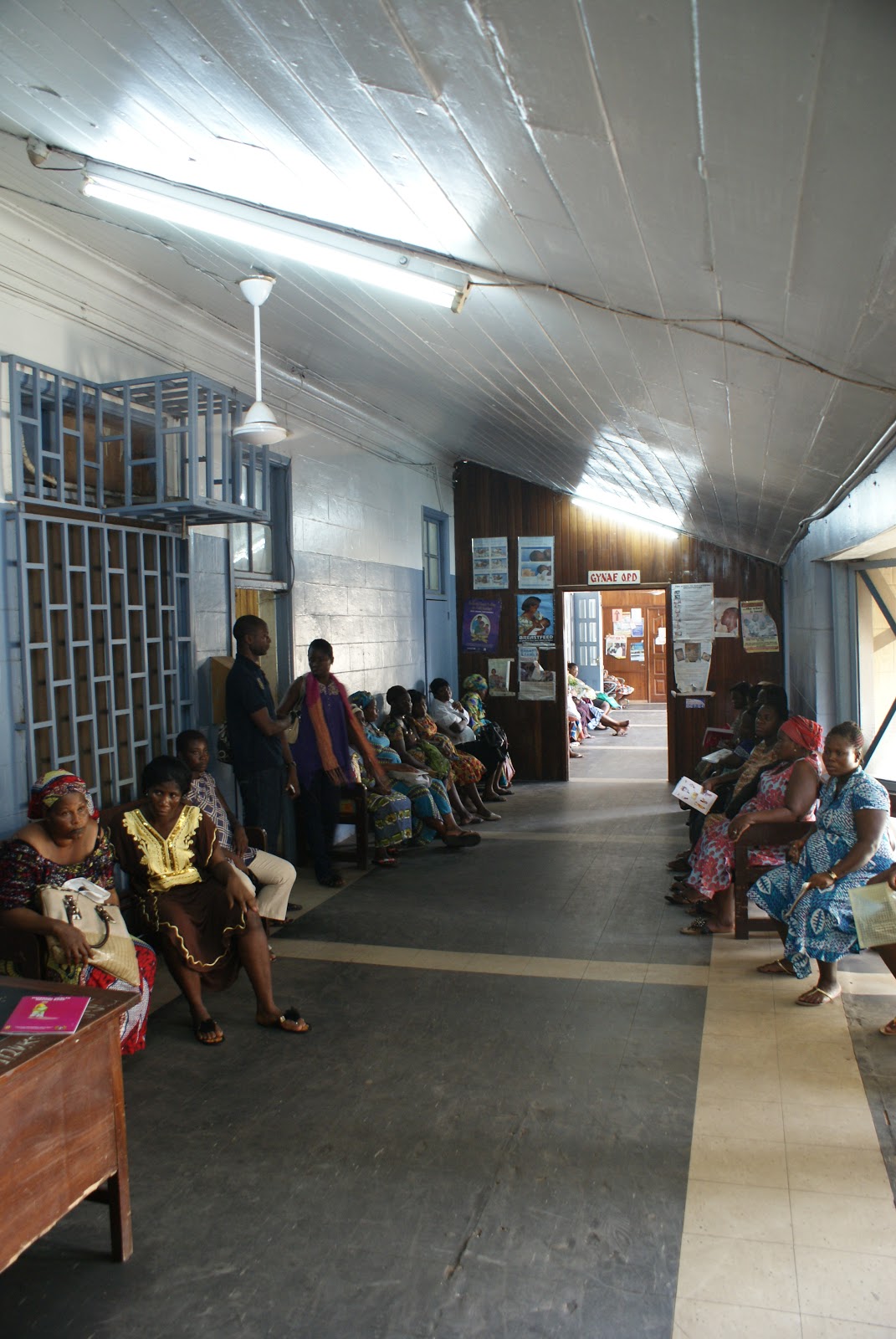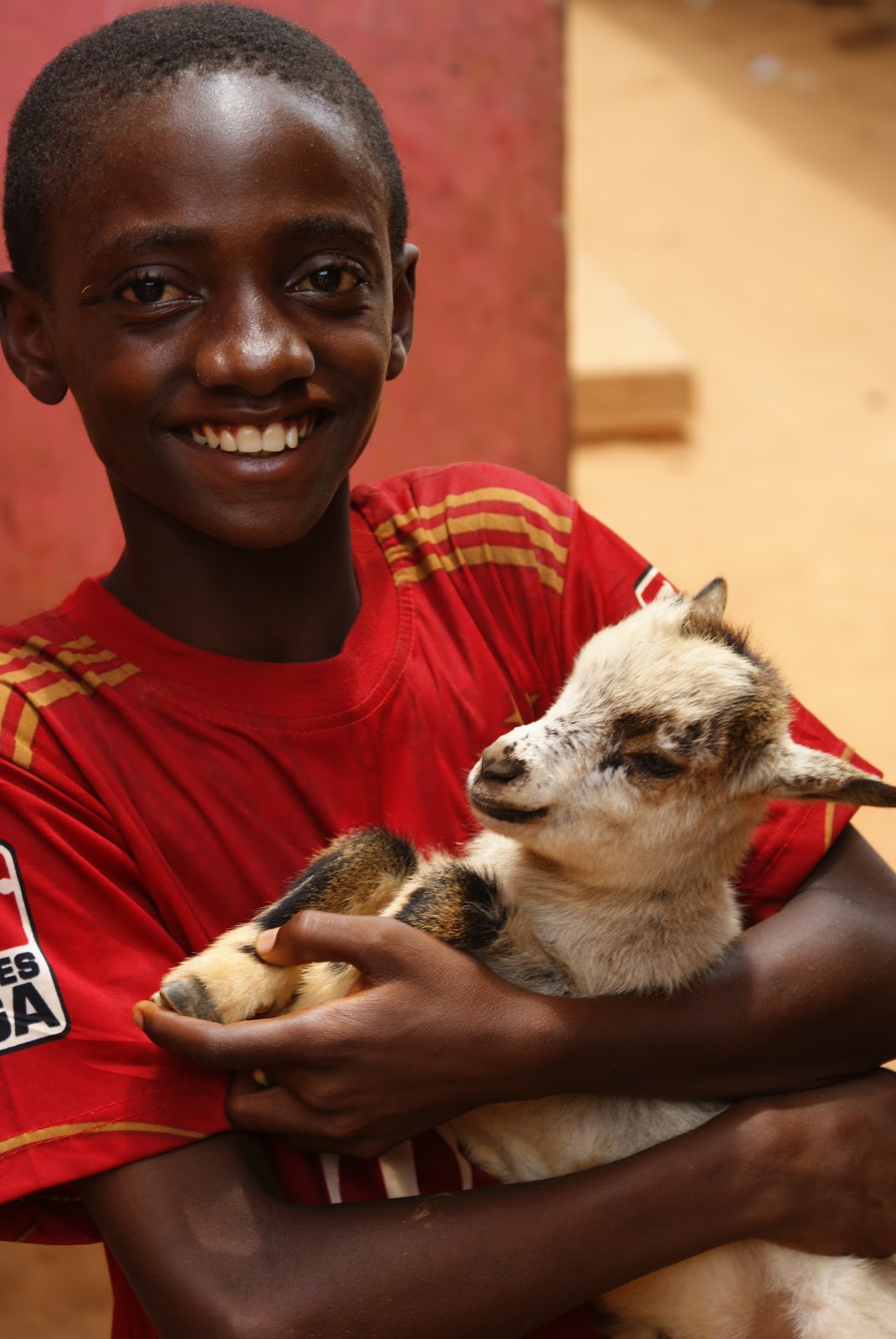There
is something magical about the birth of a baby. After nine months of getting
used to the idea that a little person is growing inside the woman, the time
comes that this human parasite is pushed out, in only seconds changing to a
breathing and screaming little baby person, growing up to be a be unique
individual human being. During my time as an intern at the obstetrics
department in a hospital in the Netherlands, this moment was easily so special
that it could bring me to tears, especially if the couple showed the some of
that amazement, love, and explosive joy towards the new life (and yes, this is
not always the case, being in shock is also an option for new parents...).
In
the Netherlands the delivery rooms are equipped to make the delivery as
personal and special as is possible in the setting of a hospital. In the
private delivery rooms lights can be dimmed, there is a comfy chair for the
husband, a personal warm shower or a skippy-ball for during the contractions,
even a cd-player so that you can bring your own music for it all. The couple is
attended by one midwife or nurse (if possible), and making the woman in labour
comfortable is one of her/his main objectives. Of course delivery itself is by
nature a painful and messy business and there is plenty of room for improvement
when it comes to the hospital treatment for sure (and it also might all be
different in other hospitals than the one I worked at), but over-all it is not too
bad...
[As
you can imagine the next part will be to describe the labour ward at the
hospital I work at in Ghana, which can hardly be more different from what I
described above. The only problem is, how do I do this without making it sound
very horrible? If you look at it from your lazy chair in whatever country you
are when reading this, it is so out of context that it might seem shocking,
inhuman, and sometimes maybe even cruel. Which it is in some way, don’t get me
wrong, but it also does make sense when you see the workload here, the shortage
in staff, space, and equipment. So please take that in mind when continuing to
read the next part...]
Now
imagine being in labour and having to wait on a hard wooden bench with several
other women in labour. No room for movement; if you try to walk around you get
yelled at by the midwifes and immediately pushed back onto the bench. If you
finally are examined by a doctor after a couple of hours, you get a slap and a
sneer from the midwife if you’d forgotten to take off your underwear before you
climb onto the high examination bed, which you first have to cover with your
own plastic cover.
Without
introduction the doctor starts vaginal examination (contraction or
no-contraction). If you touch his arm in a reflex of a pain wave from a
contraction combined with the painful examination there is a disgusted “DON’T
TOUCH ME!!” shout from the doctor that will definitely keep you from making
that mistake again. After the examination you have to go back to the bench,
until you are at least 4-5 cm dilated (and you are lucky enough that someone
examines you at that stage, otherwise you might be waiting even longer). For
those who are not familiar with those terms, that is a whole lot of
contractions later, and quite far in the whole labour process. At that stage
you finally get a bed (if there is one available). Not a private bed, but a bed
in a room with 5 other women, in a room that is smelly, hot, dirty, and in a
desperate need of some renovation work. If you don’t walk fast enough towards
the delivery room the midwife will very willingly push you in the right
direction, or shout. But at least you can lie down now. Or actually, you have to lie down now: going outside a
one-meter range of the bed is off-limits.
The
husband is not allowed to come inside; he (or any other relative) has to wait
downstairs in the hospital courtyard until the midwife shouts his name through
the window. If he’s lucky it will be to tell him that he has a healthy baby
girl or boy, but it can also be to go and quickly buy medicine or water for the
woman in labour. No updates on what is happening at the women’s quarters
whatsoever.
There
is no help with ‘puffing’ away pain of contractions (there is of course also no
such thing as antenatal couples pregnancy gym...), there is no explanation from
the midwifes during the process. When the time is there the midwife tells you
to push, the baby comes, is quickly shown with legs spread to show the sex to the
mother and then taken away to be measured and weighed. As you can imagine there
is not much of magical amazement at this point. There is mainly relief that
this scary, painful, and lonely process is over. Women just lay there, sweaty,
hot, and almost in apathy to their surroundings, until they are ordered to stand
up again and walk (!) to another room where they can lay down a little while
before they have to go somewhere else.
In
this way an average of 30 deliveries per day happen at the hospital, which
means in peak season (end of March – July) almost 50 a day. Fifty deliveries on
a labour ward with only 13 beds (including 4 in the hallway), and a maximum of
4-6 midwifes on duty (with some times some extra students and if you’re lucky a
doctor for the first examination). Since it is a referral hospital almost all
of these women have or have had complications during pregnancy or delivery,
which gives them an increased risk for a complicated delivery.
Altogether
you can imagine that a day working at this labour ward can be quite intense. I
especially have a very hard time with he way the women are communicated to (or
actually the lack of communication towards the women). Orders are shouted, not
so many nice words, no comforting. This is surely partly biased because of my
different frame of reference, and the way English is used directly translated
from Twi (which is a language without the fuss of polite forms, but just ‘you
sit now’, ‘you go!, ‘walk to that place’). So with this in mind it just might sounds
harsh to me, but the women might not experience it that way... Let’s hope so.
However,
standing beside it all, in the difficult position of the intern at the bottom
of the hierarchy, it made me feel so powerless! After the first day I did
manage to use the time that the doctor was updating the patient record to
introduce myself to the next woman in line and do some small talk with some
nice words, but still it stayed frustrating. I can’t wait to work in this kind
of setting and finally be able to do things how I would want to do them.
Because yes, the workload is crazy and it will be very difficult to stay nice,
but I really hope that I will be able to do so at least a little bit before examining
a woman’s private parts (sorry for the explicitness...).
Even
though you all might wonder at this point why I still would want to work in a
setting like this, I actually have arranged that I will be going back to Ghana
again at the end of May for another internship. This time it will be an actual
clinical internship at the paediatrics department of the small district
hospital way up north in Bawku (you can Google-map it to see that it is quite
difficult to get much more Northern than that, on the border with Burkina Faso
and Togo). Before coming to Ghana I bumped into a Dutch doctor that I knew from
my internships in Holland at the embassy in The Hague. He was preparing his
documents to start working in Ghana for a longer period of time, so we
exchanged contact details. So after coming home in a bit more than 2 weeks,
I’ll be leaving again for another 6 weeks at the end of May, but this time not
in the urban setting, but in an area where I’m the only white person together
with the other doctor... I will try to write updates during that period too.
And after that I will stay in Holland for quite some time again. Promise...
For
now only one more week of work, mainly at home to work on my data from the
research (I got a bit stressed-out at the hospital when I thought about all the
stuff I still need to do for my thesis...) and then Evelien is coming to visit
for a final week of travelling up north! I couldn’t believe it when she
spontaneously told me she wanted to book a flight, and then just did it within
the next 48 hours! I just have the best friends!
Oh...
and it’s time for another list of fun stuff, because besides working I also
experienced some other fun things like:
...
climbing the highest mountain in Ghana (not even 900 m high, but when I came to
the top I looked like I walked through a fierce Dutch autumn shower... yes,
sweaty business, blimey it was hot!!)
... hiking
through beautiful butterfly-filled jungle to a quiet waterfall in the Volta
Region (followed by a refreshing plunge of course, using the fact that we were
the only one there... magical!)
...
crossing shimmering Lake Volta by bridge in a tro-tro going back to Accra from
the ‘mountains’
...
realising that I really know my way around here by helping out some newly moved
in roommates
...
starting to talk Ghanaian English (‘oh, sorry-oh!’, ‘Ej! Why?’ [a response to
anything that might surprise you or you think is not nice], ‘Oohwokay! [the
response to anything. Any-thing!] ‘She’s not picking.’[she’s not answering her
phone], ‘Flash me!’[please let my phone ring once so I have your number], ‘I’m
coming’ [just wait a minute... or longer])
...
not being surprised that all the babies here are actually born with very light
skin, sometimes it makes you wonder whether the father is Caucasian, but he
never is.
...
having people recognise me at some places we go to regularly (the gym, our
favourite restaurant after going to the gym, the women in our street)
...
going through my phone contacts and not thinking it strange that it is full
with: ‘Wisdom’, ‘Nice-one’, ‘Iron Man’, ‘Love’, 'Divine', and more...
...
not being surprised anymore that a taxi driver happily tells me that he is
married but available (or MBA for short).... Ghanaians really have a different
view of monogamy!
See
you all very soon! But probably I’ll write one more post before that.
xxx
 |
| Weighing infants at the postnatal clinic |
 |
| Scaring away the evil eye with infant eye-liner :) |
 |
| One of the midwifes, I just love the uniforms! |
 |
| Waiting for antenatal care |
 |
| Scary! |
 |
| That's what I call green! |
 |
| Fresh jungle streams, I just love water! |
 |
| Unfortunately a bit cloudy, but still a nice view from Afadjato Mountain |
 |
| In the jungle, the mighty jungle... |
 |
| Tagbo Fall... ain't it a beauty? |
 |
| Karin and I at the Wli Falls |














